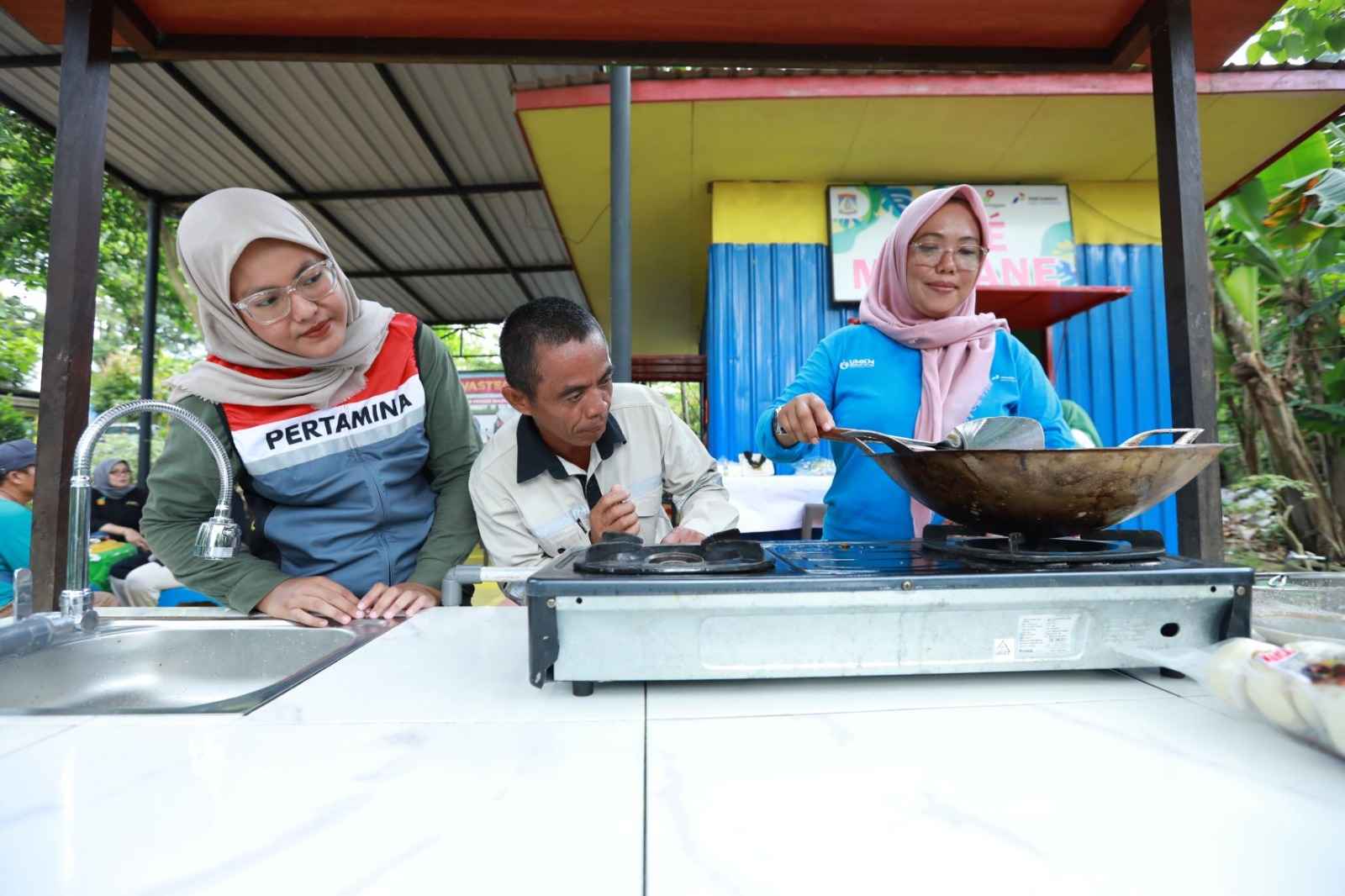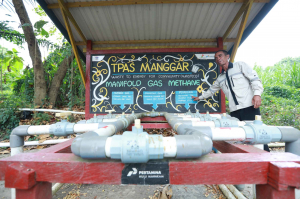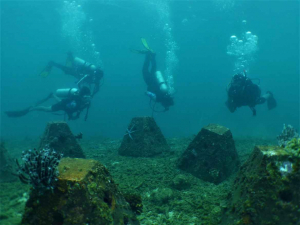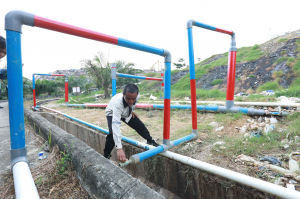29
May

In line with World Environment Day, commemorated annually on June 5, PT Pertamina Hulu Indonesia (PHI) has reaffirmed its commitment to environmental preservation through various technology-based initiatives, community empowerment, and environmentally friendly innovations. PHI, together with its subsidiaries and affiliates, manages upstream oil and gas operations in the Kalimantan region.
As a subsidiary of PT Pertamina Hulu Energi (PHE), Pertamina's Upstream Subholding, PHI is not only committed to supporting national energy security but also to realizing the sustainability of the ecosystem around its operational areas. This year, the commemoration of World Environment Day is an important momentum for PHI to demonstrate its active role in protecting the environment through various efforts and initiatives of Corporate Social Responsibility (CSR) programs related to energy transition and climate change mitigation. The following are some of PHI's leading CSR programs in the Kalimantan operational area, namely Wasteco, Jaga Pesisir Kita, and Pusaka.
WASTECO: TURNING WASTE INTO ENERGY FOR LIFE
One of the most significant challenges in urban environments is effective waste management. In Balikpapan, the daily volume of waste has reached approximately 385 tons. PHI, through its subsidiary, PT Pertamina Hulu Mahakam (PHM), sees great potential behind the volume of waste piles. Since 2021, PHM has been operating the Waste to Energy for Community (Wasteco) Program, which utilizes methane gas produced from organic waste as a source of new renewable energy, Energi Baru Terbarukan (EBT), for residents and business actors around the Manggar Final Waste Processing Site in Balikpapan.
Currently, as many as 380 households and 29 micro, small, and medium enterprises (MSMEs), or approximately 1,520 residents or 390 families, have utilized methane gas for safe cooking. This technology also supports a reduction of 100,651.70 tons of CO₂eq in annual emissions, aligning with the national strategy for reducing carbon emissions and the implementation of Carbon Capture and Storage (CCS). This program also contributes to reducing the use of subsidized 3 kg LPG gas by 18,240 cylinders per year. Wasteco is a real form of the Company's contribution to supporting the national energy transition. In addition to reducing dependence on fossil fuels, this program also fosters environmental awareness at the community level.
This program directly supports the Sustainable Development Goals (SDGs), especially in points 7 (Affordable and Clean Energy), 8 (Decent Work and Economic Growth), and 13 (Addressing Climate Change), while creating a community-based circular economy.
PROTECT OUR COAST: PROTECTING THE SEA, EMPOWERING COMMUNITIES
Coastal areas are one of the most vulnerable ecosystems to exploitation and climate change. Through the Jaga Pesisir Kita (Japes) Program, implemented in the Pangempang Beach area of East Kalimantan, PHI, through its subsidiary Pertamina Hulu Sanga Sanga (PHSS), presents an integrated approach to preserving the marine environment while empowering the socio-economic development of coastal communities.
Pangempang Beach faces pressure due to illegal activities, including explosive fishing, which has damaged approximately 17% of the Batu Lampe coral reef area, as well as mangrove logging, which causes abrasion that disrupts the stability of the coastal ecosystem. Through Japes, PHSS collaborates with tourism awareness community groups, such as Kelompok Masyarakat Sadar Wisata (Pokdarwis), and coastal supervisors to restore the ecosystem and increase the capacity of residents.
This program offers various training courses, including diving certification, lifeguard training, tourism management, and digital marketing, to prepare the community as the leading actors in sustainable marine tourism. The community has felt the benefits. On the environmental side, activities such as coastal reforestation, sea patrols, coral reef transplantation using the Spider model, and mangrove planting are carried out continuously, resulting in a reduction in coastal abrasion and a greener, more sustainable environment.
The superior innovation of this program is the implementation of the Coral Reef Barrier, an artificial structure for coral transplantation, utilizing a transplant table. The table is made of concrete block-shaped concrete and recycled ship ropes by KUBE Balanipa, one of the other CSR programs from PHSS in Badak Baru Village. The structure has been installed in as many as 60 units in Batu Lampe. This technology is the first to be applied in East Kalimantan and has shown positive results in repairing damaged underwater ecosystems.
Not only that, Japes also opens up space for the development of MSMEs based on processed seafood, utilizing superior fish products, as a growing creative economic sector driven by the spirit of preservation and sustainability.
PUSAKA: TURNING COCONUT WASTE INTO BLESSINGS
Meanwhile, in the Penajam Paser Utara (PPU) Regency area, PHI, through its subsidiary, PT Pertamina Hulu Kalimantan Timur (PHKT), especially the Southern Operations Area (DOBS) initiated the Coconut Fiber Reuse/Pemanfaatan Ulang Sabut Kelapa (PUSAKA) program to overcome coconut fiber waste that has not been managed optimally.
With a coconut plantation area of 4,283 hectares, this area produces up to 360 tons of coconut fiber waste annually. Previously, this waste was generally burned, polluting the air with greenhouse gas emissions and worsening environmental quality. Through collaboration with the Mandara Innovation Craft Producer Cooperative, the Pusaka program, developed by PHKT, has successfully processed coconut fiber into coco fiber and cocopeat since 2022. These materials are then further processed into craft products and organic fertilizers.
The Pusaka Program has successfully absorbed 108 tons of coconut fiber waste per year, equivalent to a reduction in greenhouse gas emissions of 194.4 tons of CO₂eq, and has opened up new job opportunities for 15 single-parent women who are now part of the creative environment-based business ecosystem. The Pusaka Program not only reduces waste and emissions but also has a significant social impact, particularly in empowering female heads of households to improve their economic standing.
LONG-TERM COMMITMENT TO A SUSTAINABLE FUTURE
Through these programs, PHI and its subsidiaries and affiliates have demonstrated that environmental preservation can be effectively integrated with upstream oil and gas industry operations. This commitment and effort align with the Environmental, Social, and Governance (ESG) principles, which serve as the Company's primary operational guidelines.
PHI Communication Relations & CID Manager Dony Indrawan emphasized that the sustainability aspect is not only the Company's moral responsibility but also part of its long-term business strategy. "We believe that the best investment for the future is to protect the earth today. By prioritizing innovation and collaboration, PHI is committed to being a pioneer in the environmentally conscious oil and gas industry," he said.
With various environmental initiatives in place, PHI makes a significant contribution to the national carbon emission reduction target, laying a strong foundation for a cleaner, fairer, and more inclusive energy future for all levels of society.
PT Pertamina Hulu Indonesia (PHI) is part of Pertamina's Upstream Subholding, which manages upstream oil and gas operations and businesses in Region 3 Kalimantan, which includes Zona 8, Zona 9, and Zona 10 by the principles of Environmental, Social, and Governance (ESG) in achieving its vision of becoming a world-class oil and gas company. Through its subsidiaries and affiliates in collaboration with SKK Migas, PHI runs innovative Social and Environmental Responsibility programs in the fields of Economy, Education, Health, Environment, Infrastructure, and Disaster Response to support the achievement of the Sustainable Development Goals (SDGs) and realize #EnergyKalimantanForIndonesia. PHI is headquartered in Jakarta. More information about PHI is available at https://phi.pertamina.com.


